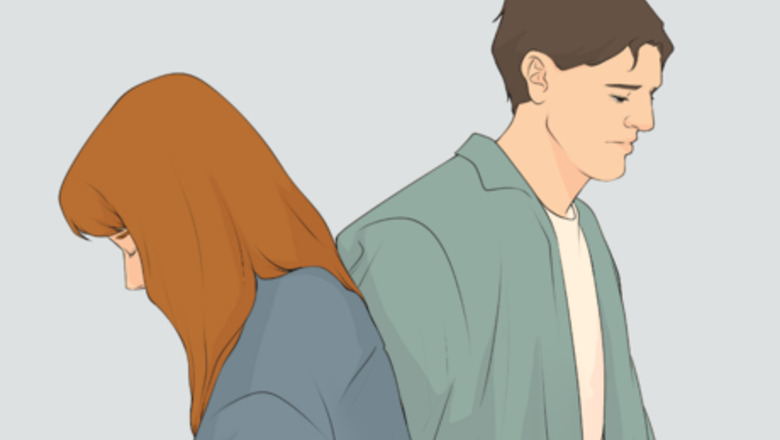
views
- People fall out of love because they have unrealistic expectations or don't feel appreciated and start to think someone else might be a better fit.
- If you no longer enjoy spending time with your partner and instead look for ways to avoid them, you might be falling out of love with them.
- Reflect on your feelings and then sit down and have a serious conversation with your partner to see what can be done to heal the rift between you.
Reasons People Fall Out of Love

They believe someone else might be better for them. If someone is falling out of love with their partner, they might start to imagine being with someone else. They could start to think that someone else would be easier to get along with, or wouldn't have the same issues their current partner does. It's normal to wonder if the grass is greener in a lot of situations. For example, you might imagine a different job or a different city would be better for you. In a relationship, this can become problematic if you're actively looking for people who you think would be better than your current partner or if you're imagining being in a relationship with someone specific, such as a cute coworker or a friend.
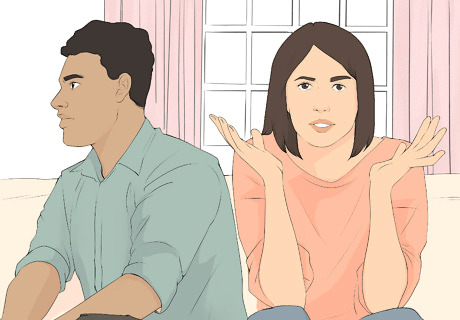
They have communication issues with their partner. Sometimes people avoid bringing up problems they have with their partner. Maybe they're concerned that their partner will think they're just complaining all the time, or maybe they're worried it will start a fight. Either way, when one person allows the issues they have to fester, they can start to feel as though they're falling out of love with their partner. Remember that no matter how long you've been together or how close you are, your partner isn't a mind reader! Don't expect them to know that something's bothering you unless you bring it up with them.

They have unrealistic expectations for the relationship. People often idealize the progression of a relationship, especially when it's first starting. If things don't end up the way they dreamed, they might start to feel as though they're falling out of love with their partner. Their dream world just doesn't mesh with reality. Being infatuated with your partner is a relatively temporary state of being. Over time, as the two of you get to know each other better and become more familiar with each other, a different kind of love will develop. While the more long-term love might not be as exciting as that feeling of falling in love, it's a lot more stable and dependable.
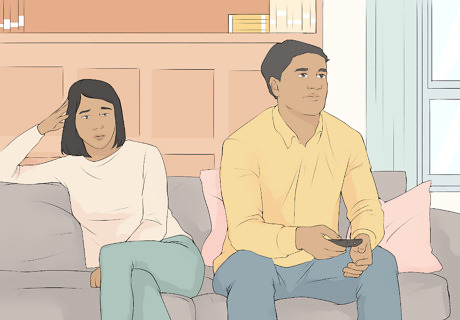
They don't feel appreciated. If someone doesn't feel as though their partner appreciates them or is taking them for granted, they can start to feel resentful. Those feelings of resentment can lead them to feel that they're falling out of love. When you feel as though your partner doesn't appreciate you, you might tend to act out or stop doing things for your partner that you've done in the past. If your partner is truly taking you for granted, they might not notice when you stop doing things for them. Instead, they'll just wonder why those things no longer get done.
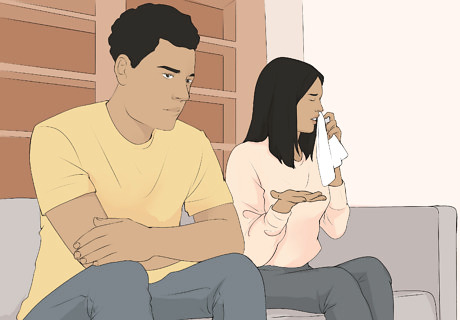
Difficult events have strained the relationship. Life has a way of throwing challenges in a couple's way, and often these stressful situations cause partners to build up anger and resentment toward each other. If one partner starts to feel as though they don't have enough support, or the right kind of support, they might feel as though they're falling out of love. For example, if you've recently lost a parent and your partner still has both of their parents, you might start to feel as though they don't understand the grief that you're dealing with. This can cause a rift to grow between the two of you.
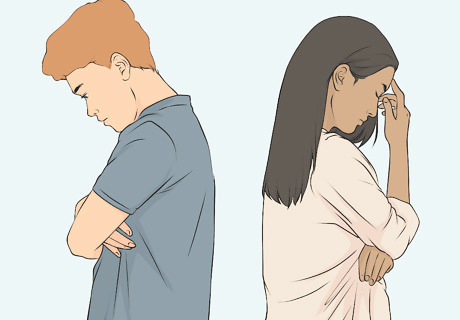
They have grown apart from their partner. Sometimes this means that one person has taken steps to improve their life while the other is content to stay in the same lifestyle. It might also mean that the two have just become interested in different things and have different goals in life than they did when the relationship started. In either situation, growing apart from each other is a strong reason for the couple to fall out of love. For example, suppose you've recently quit smoking and started running. Your partner, on the other hand, prefers to continue to lead a more sedentary life. Your differing priorities could lead to one or both of you falling out of love.
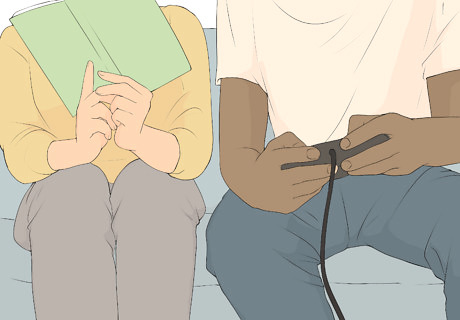
They don't have enough in common with their partner. Strong relationships are based on the shared values and interests the two partners have in common. While people like to say that "opposites attract," the truth is that opposites can't always stick together in the long run. When they have less in common, it's possible for one partner to fall out of love with the other. It's possible that you never really had a lot in common with your partner and that's just starting to be a big deal. It's also possible that you and your partner originally had a lot in common but your interests have diverged since then and you're no longer together on a lot of things.
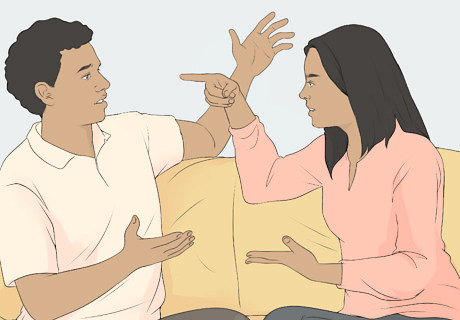
They fight with their partner about everything. When everything becomes an argument, that's no way to live. Eventually, one or the other partner might start to feel as though they're falling out of love because they do nothing but fight all the time. If they aren't finding joy in their relationship, they likely won't want to continue it. When you're fighting about every little thing, there's usually some underlying issue that you're not talking about. If you can get to the root of the problem and talk about that, you'll be on the path to healing your relationship. Reader Poll: We asked 324 wikiHow readers about what led them to end a tricky romantic relationship, and 65% agreed that when it started to create lots of negative feelings, like annoyance, anxiety or confusion, that was the final straw. [Take Poll] So if this is in line with how you're feeling, you're not alone.

One of the people in the relationship cheated. If the couple tried to repair their relationship after the cheating came to light, it's still possible that they could fall out of love with each other. Despite their best intentions, healing after infidelity takes a lot of effort and sometimes the partner who was cheated on finds they just can't look at their significant other the way they once did. If your partner cheated on you, talking to them about your inability to get past the infidelity is a good step in the right direction. Attending couples counseling is one way to help heal your relationship after infidelity. But if your partner isn't willing to attend counseling, it might be time to separate. Healing requires effort from both of you.

One of the people in the relationship is in love with someone else. There might not be cheating involved, but if one of the partners has started developing feelings for someone else, that's a likely reason that their feelings for their partner might have started to wane. They've decided to invest their emotional energy into someone else. This might not even be another person! A partner who invests all of their emotional energy in anything else—work, a hobby, a friend, a new project—might not have enough left to devote to their partner and their relationship.
Signs You're Falling Out of Love
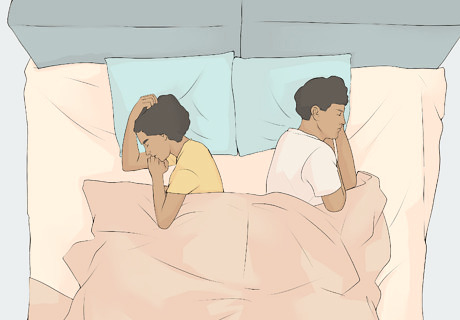
You no longer enjoy thinking about your partner. When you and your partner first fell in love, you thought about them all the time. You constantly wondered where they were, what they were doing, and whether they were thinking about you too. Now? Not so much. In fact, you try to put your partner out of your mind as much as possible. If that sounds like you, you might be falling out of love with your partner. If you're falling out of love, you probably also don't ask your partner about their day or ask them other questions about things going on in their life. You might find you just don't have the curiosity you once did.

You spend a lot of time thinking about someone else. Daydreaming about being with someone else could mean that you're starting to fall for that other person. But even just thinking a lot about being single and not being with your partner anymore can be a good sign that you're falling out of love with your partner and don't want to be with them anymore. It can be normal to imagine what your life would be like with someone else, or what your life would be like without your partner. The real question is whether you're happy in your relationship. Ask yourself what you're missing in your relationship with your partner. Is it just that you want to be single and have a little more excitement in your life? Or do you legitimately believe this other person would be a better match for you?

You don't look forward to spending time with your partner. When you first got together, you probably counted the hours or days until you could spend time with your partner again. Just spending time with them, even if you weren't really doing anything special, was so amazing. But if now it seems like a drag to do things with your partner or just hang out with them, that could be a sign that you're falling out of love. You might also find that you're spending more time with other people than with your partner. For example, maybe you and your partner always used to go to local baseball games, but now you go with your best friend instead.
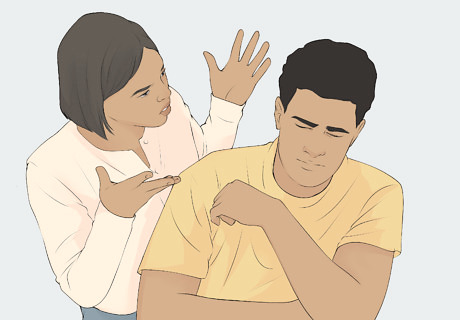
You don't try to come up with ways to please your partner. Relationships take effort to maintain. If you've stopped trying to put any energy into the relationship and keep that spark alive, it could be that you're falling out of love with your partner. This is potentially a point when you feel like you're just kind of going through the motions of the relationship and doing the bare minimum to avoid upsetting your partner. Another thing you might notice is that you no longer pick up little things for your partner or go out of your way to do something for them.
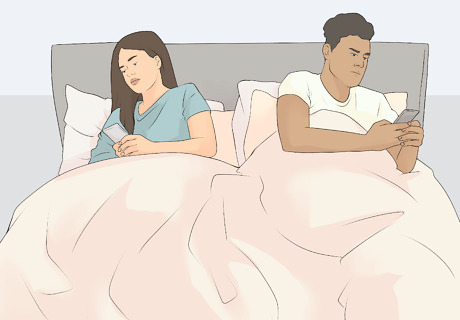
You no longer talk about the future. It could be that you've both been moving in different directions and now have different ideas for the future. Another possibility is that you just don't care to think about your partner in your future anymore—you're more focused on what you want instead of what both of you might want. This is typically a sign that you're falling out of love with your partner. For example, when you're talking about something that's going to happen in the future, you talk in terms of what I am going to do, rather than what we are going to do. You might say, "I'm thinking about going on vacation next month to visit my sister."
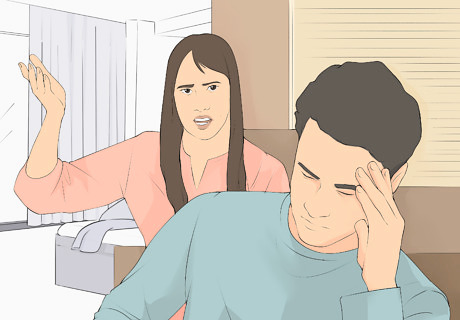
Little things start to annoy you a lot. If you're starting to fall out of love with your partner, their little quirks and habits that never bothered you before might start to drive you up the wall. Because you're so focused on their negative traits over their positive traits, everything becomes problematic. For example, you might suddenly find it super annoying the way your partner loads the dishwasher, even though you never even paid attention to it before.
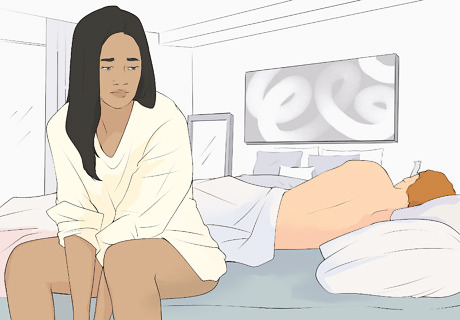
Your sex life is nonexistent. It's natural for sexual desire to come and go at different points in your life. But if you find yourself completely uninterested in being physically intimate with your partner, that could mean you're falling out of love with them. This is especially likely if you used to have a very active sex life. This sign is particularly common to see after infidelity, especially if it was your partner who cheated on you. This is often because you can't stop thinking about the idea of them being with someone else. Physical intimacy also requires a lot of vulnerability. If you no longer feel very emotionally invested in your partner, allowing yourself to be vulnerable can be really hard.
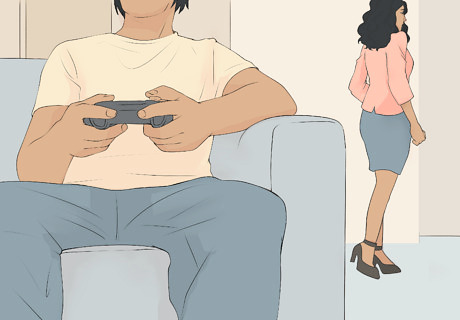
You look for ways to avoid your partner. This might mean that you go to bed early so you don't have to sit and watch TV with them, or that you leave for work early so you're gone before they wake up. Regardless, if you find yourself rearranging your schedule so you won't cross paths with your partner, that could mean that you're falling out of love with them. You might be avoiding them for a number of reasons, such as not wanting to talk about your relationship or not wanting to argue about anything. If you find your partner annoying, you probably want to avoid them so you can enjoy life a bit without them bothering you.

You feel contempt for them but don't bother arguing. Typically, when you're arguing about something, it's because however you feel is really important to you. But if you've stopped bringing things up that bother you because it's just not worth it, that could be a sign that you're falling out of love with your partner and no longer care to fix the problems in your relationship. If you're doing this sort of thing, you might also find yourself agreeing with your partner even when you don't actually agree with them just because you want to avoid a fight and don't think it's worth the hassle.

You're only staying with your partner for a sense of stability. If you feel like you're only staying with your partner for some external reason, such as a family obligation, financial stability, or even simple inertia, that could be a sign that you're falling out of love. If you were still in love, you'd have a million reasons to be with them—it wouldn't just be a matter of avoiding some unpleasant consequence. In this situation, it might not be that you're fantasizing about being single or being with someone else—you might be terrified of being alone and that's why you don't want to confront how you feel about the relationship.
Working on Your Relationship

Reflect on your feelings about your relationship. Are you really falling out of love, or are you just in a rut? Before you talk to your partner about your feelings, make sure you have a good idea of how you really feel and what you really want out of the relationship. Do you want to end things, or do you believe the two of you have something worth saving? Talking to a therapist—either on your own or with your partner—can help you unpack your feelings about the relationship and identify the needs you have that aren't being met by the relationship. Journaling is another way to reflect on your relationship. Start by writing down the story of how the two of you fell in love. Recalling the good times can help you figure out what's missing now. Despite how you feel now, it is possible for you to fall back in love with your partner again. If both you and your partner really care about the relationship and want to make it work, you can usually find your way back to each other.
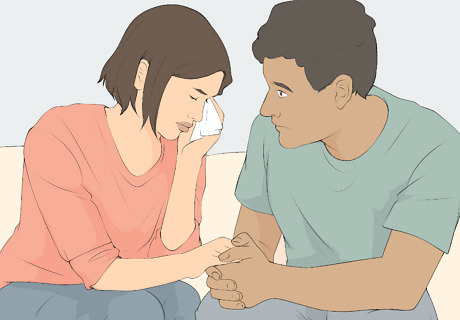
Have a serious conversation with your partner. Whether you think you're falling out of love or you think your partner is, an open and honest conversation will help you understand each other better. Plan this conversation for a time when both of you are relaxed and well-rested and can sit down and talk face-to-face without any distractions. For example, you might say, "I've been feeling as though things are a little off in our relationship lately. Can we talk about this tomorrow after dinner?" Try to carve out a little time each week to have a relationship check-in conversation with your partner. This will give you an opportunity in the future to address issues before they become major.
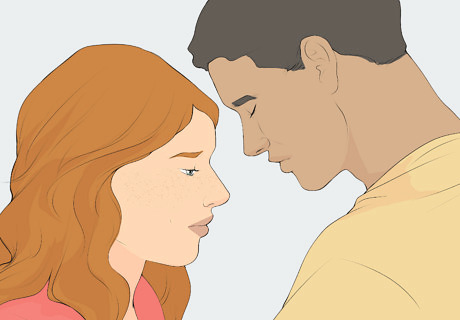
Evaluate your compatibility with your partner. It could be that one of you presented yourself in a slightly different light that wasn't entirely authentic. After 12 to 18 months, those feel-good love chemicals in your brain start to taper off and you have a clearer picture of each other. This is when you can truly start evaluating if your partner is really the right person for you. This could also happen if you and your partner have grown apart from each other and developed different goals and interests that you didn't have when you first got together. It might be that you simply don't have enough in common to work out really well as a couple—and that's okay! In that situation, it's usually better to end the relationship than to try to force it to work.
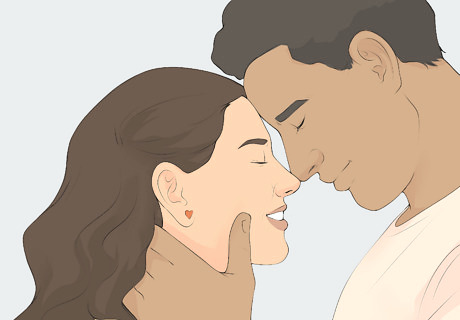
Develop a sense of gratitude and appreciation for your partner. When you cultivate feelings of gratitude and appreciation for each other you'll both find more joy and love in the relationship. This is especially important if either of you felt as though you were falling out of love because you didn't feel appreciated. Don't wait for your partner to do something extraordinary—show appreciation for the little things they do every day, such as doing the dishes or folding the laundry. Building this sense of gratitude starts with simply saying "thank you" when your partner does something that benefits you or the relationship. For example, you might say, "Thank you for taking out the trash last night. I really appreciated that."
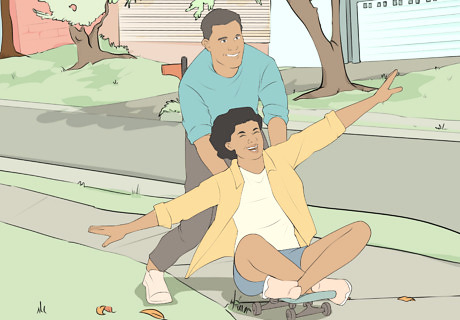
Try new things with your partner. Make time to have fun together and rebuild your connection. Don't talk about relationship issues during these times, just focus on having a positive interaction with each other. For example, if you and your partner have never played pickleball before, you might sign up for a lesson and learn how to play together.










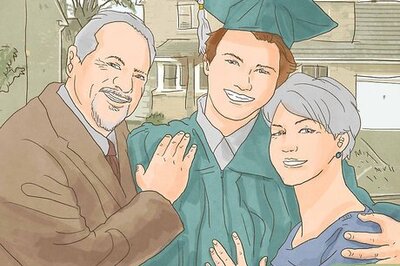








Comments
0 comment